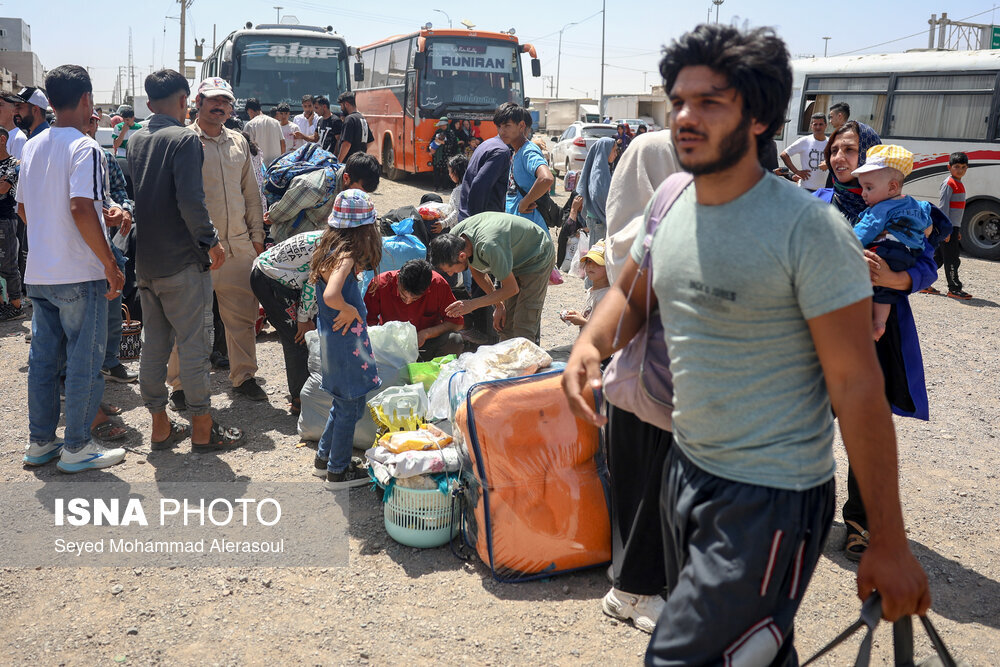Over 80% of Afghan refugees voluntarily return home

TEHRAN – From the beginning of the current Iranian year, March 21, till June 27, a total of 717,658 Afghans have returned to Afghanistan; more than 80 percent of them were dispatched voluntarily.
According to the head of the National Organization for Migration, Nader Yar-Ahmadi, there has been no change in the residency and the kind of services provided to documented Afghans residing in the country.
On the contrary, they will benefit from more services as illegal nationals leave the country, IRNA reported.
“The majority of these nationals are employees or students; we normally consider employment as a foundation for residency in our long-term planning,” IRNA quoted Yar-Ahmadi as saying.
The official went on to say that the presence of illegal migrants in any country poses many challenges, and in critical situations, they will be the main suspects. Their presence negatively impacts the economy, social, and security sectors.
Global experience has shown that migrants at most can account for three percent of the population of any country. With Iran’s population estimated to reach around 90 million next year, the figure will amount to three million migrants. Currently, there are more than 6.1 million nationals living in the country, which should gradually decrease, Yar-Ahmadi added.
According to the International Federation of Red Cross and Red Crescent Societies (IFRC), the number of Afghans returning from Iran this year has surpassed 800,000. More than 137,000 people crossed back into Afghanistan via the Islam Qala border in June alone.
The IFRC has appealed for increased funding, essential supplies, and long-term support to help Afghans returning home from Iran rebuild their lives.
The organization has urged governments, donors, and humanitarian organizations to help refugees, highlighting that the Afghan Red Crescent and its partners are doing all they can, but the scale of need is immense.
“This issue hasn’t received the attention it deserves,” said Alexander Matheou, IFRC’s regional director for Asia Pacific, following a visit to the border over the weekend. “These individuals are not just statistics.
They are mothers, fathers, and children returning to a country already facing enormous challenges.”
Which Afghan nationals are allowed to stay in Iran?
Afghan nationals who are university students, vulnerable women heads of households, children with an Iranian parent, and those who have a job code are allowed to live in the country.
Students whose parents do not have legal permission to reside in the country have to return to Afghanistan by July 6. However, the case is different for university students. Having passports, they can extend their stay in the country, IRNA quoted Nader Yar-Ahmadi, the head of the National Organization for Migration, as saying.
Women heads of households whose life is confirmed to be threatened by their return will be able to stay temporarily in the country and benefit from treatment services.
According to the law, being born in Iran does not grant Iranian citizenship. If the child’s father is Iranian and the parents’ marriage is legally registered, the child will be considered Iranian and will have an identification (ID) card.
In cases where the mother is Iranian and the father is a foreign national, even if the marriage is not registered, the child will receive an ID card with the mother’s last name.
If undocumented nationals who have worked under a job code leave the country voluntarily, they can receive a visa to get back to their work, in case their employers agree. However, if they are arrested and deported, they will be banned from applying for a visa.
MT/MG
Leave a Comment